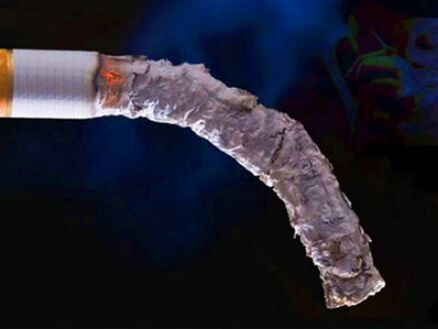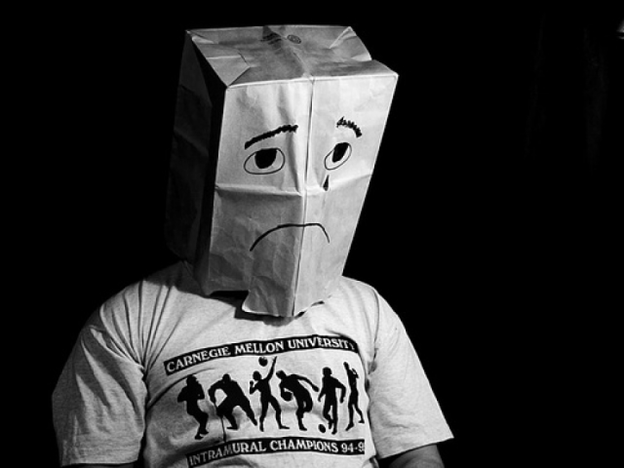It is very important for every man to have strong sex. One of men's biggest subconscious fears is sexual impotence or impotence. However, after 40 years, a man may begin to show the first signs of a decrease in potency.

In this case, you need to get rid of all the complexes and consult a doctor, because in the early stages this problem is quickly and effectively treated.
Problems with potency: types of disorders
Impotence is the gradual decline and complete loss of male sexual function. This disorder can remind itself after the age of 40 and with age the man only increases if no action is taken. There are symptoms (or criteria) that allow a doctor to diagnose a decrease in potency in a man:
- A man who lacks sexual attraction to a woman.
- With sexual desire, a man still has difficulty achieving an erection, that is, erectile dysfunction is observed.
- A man cannot insert an erect penis into a woman's vagina.
- A man suffers from premature ejaculation, while an erection is short-lived.
- A man has delayed or even no ejaculation at all.
- To achieve orgasm, a man needs special conditions (for example, in a car, elevator, park, etc. , where intercourse can be seen by others or in other non-standard conditions). .

There are 2 types of impotence, based on the nature of its occurrence:
- Organic. This type of disorder occurs due to any problem in the body: certain diseases, medications, trauma, etc. v.
- mental. This disorder occurs due to any number of psychological factors: stress, subconscious fear of sexual failure, insecurity, trauma, etc. v.
However, there are many reasons that can contribute to the development of potency disorders. It is very important to know about them, because identifying the cause of the problem is the first step to solving the problem yourself.
Problems with potency: causes
What to do if a man suffers from sexual dysfunction? First of all, you need to determine the cause of this.
Among the most common causes of the development of problems in men are:

- irregular sex life. If a man's sex life is irregular, potency is reduced and sexual behavior is distorted.
- Infectious Diseases. For sexually transmitted diseases, modern medicine treats them quickly and effectively. But only drugs that give such a good therapeutic effect reduce their effectiveness significantly. Therefore, sexual behavior is too active, having sex with different partners is not the best option. The danger to strength is also the failure to completely cure diseases of the genitourinary system: prostatitis, orchitis, seminal vesicles, urethritis, etc. v.
- Chronic diseases. Diseases such as high blood pressure, endocrine system disorders, diabetes, prostate cancer, significantly reduce sex drive.
- bad habits and objective factors. Alcohol abuse, drug abuse, sedentary lifestyle, smoking, irregular eating and sleeping patterns and poor nutrition and climate are also enemies of a man's sexual power.
- age factor. After 40 years, the "first bell" of the decline of a man's sexual power may appear. At the same time, you need to understand that each person has their own body, their own rhythm, their own concept of standards. Therefore, you should not take it as a standard set by doctors - at least 1 time a week of sex. If a man has a stipulation, for example: 1 act in 10 days, then you should not "alarm" and prove to yourself and your partner that everything is in accordance with his abilities. This will lead to physical exhaustion, and then, indeed, confusion.
For any man, the fact that he can no longer do everything that he can lately is a huge stress. But impotence is treated quickly and effectively. And the sooner a person visits a specialist, the quicker and easier it is to solve the problem.
Problems of potency in men: physiological aspects

The onset of impotence is easy to explain physiologically. To do this, you just need to understand the specifics of the structure of the male penis and the mechanism by which an erection begins. The body of the penis has a spongy structure, containing many cavities. This is what allows the erection process to begin.
When a member is in a calm state, blood circulation occurs as follows: blood quietly enters the compartments through the arteries, and passes through the veins. During sexual arousal, the amount of blood to the cavernous bodies increases sharply, and at the same time the veins narrow, preventing the outflow of blood. And every cavity is filled with blood. Externally, this is manifested precisely in the tension and enlargement of the penis.
It is worth noting that almost every man has at least once experienced an inability to get an erection. And this is not a pathology, more or less a sign of impotence. If such a condition occurs continuously then only in this case can impotence be diagnosed.
Physiological nature of impotence
There are several causes of impotence, which are purely physiological or the nature of the body. Including:

- Hormonal disorder. First of all, the cause may be due to the dysfunction of the gonads, which are responsible for the production of testosterone. This problem has several signs: the tone of the voice increases, excess fat accumulates in the hips, buttocks, chest, hair growth on the body and face slows down. Another possible cause is a pituitary tumor. This means that the tumor is actively producing prolactin. It is an excess of this hormone that causes the disorder.
- cavernous sclerosis. In other words, the thin tissue of the cavities of the penis dies and is replaced by raw tissue. Causes of scleroderma, in turn, can be trauma to the penis, narrowing of the foreskin, intentional delay in intercourse (if this is a regular behavior).
- disorders of the cardiovascular system. Diseases such as aortic aneurysms, varicose veins and atherosclerosis can lead to problems with male potency. They directly affect the flow of blood in and out of the penis. In particular, blood flow to the penis may not be enough, leading to prolonged and sometimes even painful erections. In this case, the member is in a semi-excited state. Or vice versa, maybe the bleeding is so intense that the erection is quick, but also quick and over. Sometimes a man doesn't even have time to complete intercourse.
- disorders of the nervous system. Diseases such as epilepsy, traumatic brain injury, Parkinson's disease, and multiple sclerosis can cause problems in your sex life. However, these illnesses often aggravate a person's condition and reduce his quality of life to the point where sex is the last thing on his mind.
Problems of potency in men: psychological aspects
Impotence can also be of a psychological nature. This means that psychological factors have influenced a man's sexual strength. These possible reasons usually include:

- Psychological trauma. This can be a variety of situations: for example, a man suffers from sexual failure, but he does not get support from a woman. Even worse, if a woman is not only resentful or annoyed but also laughs at a man, accuses him of not loving her, or worse, calls her impotent. A woman's behavior and reactions in such situations play a huge role.
- stress, nervous tension, depression. The life of a modern man is fraught with stressful situations; For many people, life is really a race to the bottom. It is not surprising that sooner or later a man begins to have difficulty in an intimate matter.
- complex, subconscious fear. According to endocrinologists, that is why a man begins to have difficulties in psychology. Complexity that it won't be possible to please a woman (for example, on first intimacy), fear of "messing up" (especially if there is a precedent), etc. v. - all of this immediately affects the capacity of a man. In addition, it is possible that partner incompatibility can also cause impotence. According to male specialists, of all possible causes of impotence, the most common cause is psychological. Therefore, usually the treatment of men with such a diagnosis is carried out by a psychologist (sexologist). <
Effectiveness disorder treatment
There are several approaches to treating the disorder. Depending on the severity of the disease, its cause, the patient's age and general health, and other factors, the doctor may recommend an option:
Medical therapy
Pharmacies have a lot of different drugs "for effect". But not all men think that they can, on the contrary, cause harm to the body. In addition, if a man, for example, suffers from impotence due to a disorder of the endocrine system, then no matter how much medication he takes, it will not help him, since the situation improves only after the disorderendocrine is removed. Therefore, you must always remember that drug treatment is the prerogative of the specialist.
Counseling of a psychologist (sexologist)
A psychologist (sexologist) can not only help in cases of psychological impotence, but also when a man, going through a very difficult diagnostic process, falls into a state of depression. , v. v. A psychologist can help a person:
- Identify the cause of the problem (fear, complexity, stress, uncertainty, etc. ).
- Address these psychological problems (for example, getting rid of the complex or teaching how to deal with stress).
- Get out of despair, depression, etc. v. , if these experiences exist.
- Psychological support, helping patients optimistically look to the future.
As a rule, if a person is suffering from a serious illness, drug treatment combined with psychotherapy will give excellent therapeutic effects.
Penis prosthesis
This is a drastic measure, used as a last resort, when no other treatment has worked. Usually this method is applied to men at a younger age. The operation is 100% effective, performed at such a high level that it is not always possible for specialists to notice that a penile restoration has been performed.
Only one doctor treats the patient. He conducts a diagnosis, comprehensive examination, determines the cause of the disorder, and only on the basis of these data prescribes the necessary course of treatment for a particular patient. Sometimes a psychologist works with both partners, because the effectiveness of treatment directly depends on the correct behavior of the wife.
Additional activities
These include, for example, dietary recommendations that, in the early stages of the disorder, can even resolve the situation on its own. In more severe cases, diet is a mandatory supplement. It is important for any man to eat foods rich in vitamins E, C, beta-carotene.
Vitamin E contains all nuts, sunflower seeds, beef liver, buckwheat, oatmeal, eggs, vegetable oils (especially soybeans) in their raw form.
Vitamin C is abundant in sea fish, seafood, berries, citrus (especially lemons), fruits.
Carrots, bell peppers, all types of cabbage, green vegetables (especially parsley), apricots contain beta-carotene in large amounts.

























